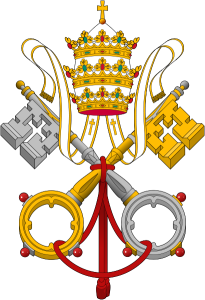podcast 163 – Dr. K. Scott Oliphint on How Christianity Trumps Philosophy
Does Christianity trump Philosophy?
Does Christianity trump Philosophy?
Now for another historical interlude – I’ll get back to current philosophy shortly. Regular readers will note that I’ve been insinuating for a while now that the way many people understand the mainstream, so-called “Latin” trinitarian position amounts to a certain variety of modalism (which entails S-modalism, to which I’ve objected). Some of you know that I also work on what philosophers call “early modern”… Read More »Nothing New Under the Sun – Part 1
Should we defend what we think are biblical, yet unintelligible or seemingly incoherent claims as “mysteries”?
Review of Thomas McCall’s Which Trinity? Whose Monotheism?
Here is a guest post by Sir Anthony Buzzard. In it, he discuses what many would consider an obvious point, though some ignore or deny it: that the theology of Bible-era Judaism is monotheistic in a way that implies that the one God just is a certain mighty self. In Mark 12, Jesus simply affirms that theology. It is standard information in all the… Read More »Jesus’s Jewish error?

First, a few clarifications. By “modalist” I do not mean “Sabellian” or “monarchian.” (Those ancient catholics probably did hold to various forms of modalism, but the term is not a historical one, and can refer to other views which probably no ancient person held.) Nor do I mean modalism by definition to be heretical relative to orthodox/catholic creeds. What I mean is that at least one of these – Father, Son, Spirit – is a mode of the one God, in some sense a way that God is. That last phrase is deliberately ambiguous.
In his recent Christmas sermon the Pope said:
In all three Christmas Masses, the liturgy quotes a passage from the Prophet Isaiah, which describes the epiphany that took place at Christmas in greater detail: “A child is born for us, a son given to us and dominion is laid on his shoulders; and this is the name they give him: Wonder-Counsellor, Mighty-God, Eternal-Father, Prince-of-Peace. Wide is his dominion in a peace that has no end” (Is 9:5f.). … A child, in all its weakness, is Mighty God. A child, in all its neediness and dependence, is Eternal Father. …
God has appeared – as a child. It is in this guise that he pits himself against all violence and brings a message that is peace. (emphases and link added)
This last phrase, X has appeared as S, is ambiguous. It could mean Read More »Is the Pope a Modalist?
Is the idea of essence the key to understanding Bauckham’s christology of divine identity?
Is God “outside of time”? What does this claim mean, and should a Christian affirm it?
Do Genesis 48, 1 Samuel 3, and Jeremiah 1 refute biblical unitarian views on God and Jesus?
Do Christian claims clash with Philosophy?
In this episode, my evaluation of the case made by Shadid Lewis. Does he establish, on grounds which his opponent must affirm, that the Trinity implies polytheism? See Lewis’s arguments as analysed on the post for episode 17. What is the doctrine of the Trinity anyway? Are the persons members of an eternal group of wonderfully unified friends? Or are they aspects or personalities of… Read More »podcast 21 – review of the Lewis-Rogers debate – part 2
 I woke up this morning, and realized that there is a problem with how I’ve been defining the concept of a unitarian. In this post, I will attempt a definition of the concept of a trinitarian, after reviewing what is required of a good definition. Next time, I’ll try to define the concept of a unitarian.
I woke up this morning, and realized that there is a problem with how I’ve been defining the concept of a unitarian. In this post, I will attempt a definition of the concept of a trinitarian, after reviewing what is required of a good definition. Next time, I’ll try to define the concept of a unitarian.
According to the textbook I have used for years in my critical thinking class, a good definition should:
What is a trinitarian?
Definition 1: someone who believes in a triune god.
Richard Swinburne was a visiting fellow at Biola University’s Center for Christian Thought in the Fall of 2012. Here are the videos they’ve posted from that visit. Interestingly, they seem to have avoided the topic of Swinburne’s Trinity theory – at least, judging by the videos they posted. One has to wonder why. Maybe they just wanted to leave room to discuss the soul, about which… Read More »Swinburne @ Biola
Here’s a later (partisan, 20th century Unitarian) account of one of several trinitarian controversies in early modern England, started by men within the Church of England who would have considered themselves Christians and trinitarians, but who rejected mainstream medieval trinitarian thinking, especially as embodied in the “Athanasian” creed. During this controversy, these dissenters started using the term “Unitarian”, as they disliked being tarred as “Socinians“,… Read More »Nothing New Under the Sun – Part 2
Brian Leftow is recognized as one of the most important living Christian philosophers. Formerly of Fordham University in NYC, he now holds the prestigious Nolloth Chair of the Philosophy of the Christian Religion at Oriel College, Oxford. See Trent Dougherty’s comments here for a list of some of his publications. In person, Leftow is very pleasant and interesting, and his sense of humor also comes… Read More »Leftow 1: “Anti Social Trinitarianism”
Here’s where we stand. Bill urges that we should say that God’s essence = God’s existence because this (and only this) explains why God necessarily exists (and this not because of any other being). Me, I don’t grant that it’s even coherent to suppose that something’s essence just is its existence. So last time, I took a shot at a different argument for that conclusion… and… Read More »Dialogue with the Maverick Philosopher: God is a being, not Being itself – part 7
Could each divine “Person” of the Trinity be either an attribute of God or God together with an attribute?
If God is essentially immortal, the answer must be: No. But the human Jesus of the Bible was then mortal.
Does it make sense to say that God is a soul with three cognitive and volitional faculties – but is nonetheless not a self?